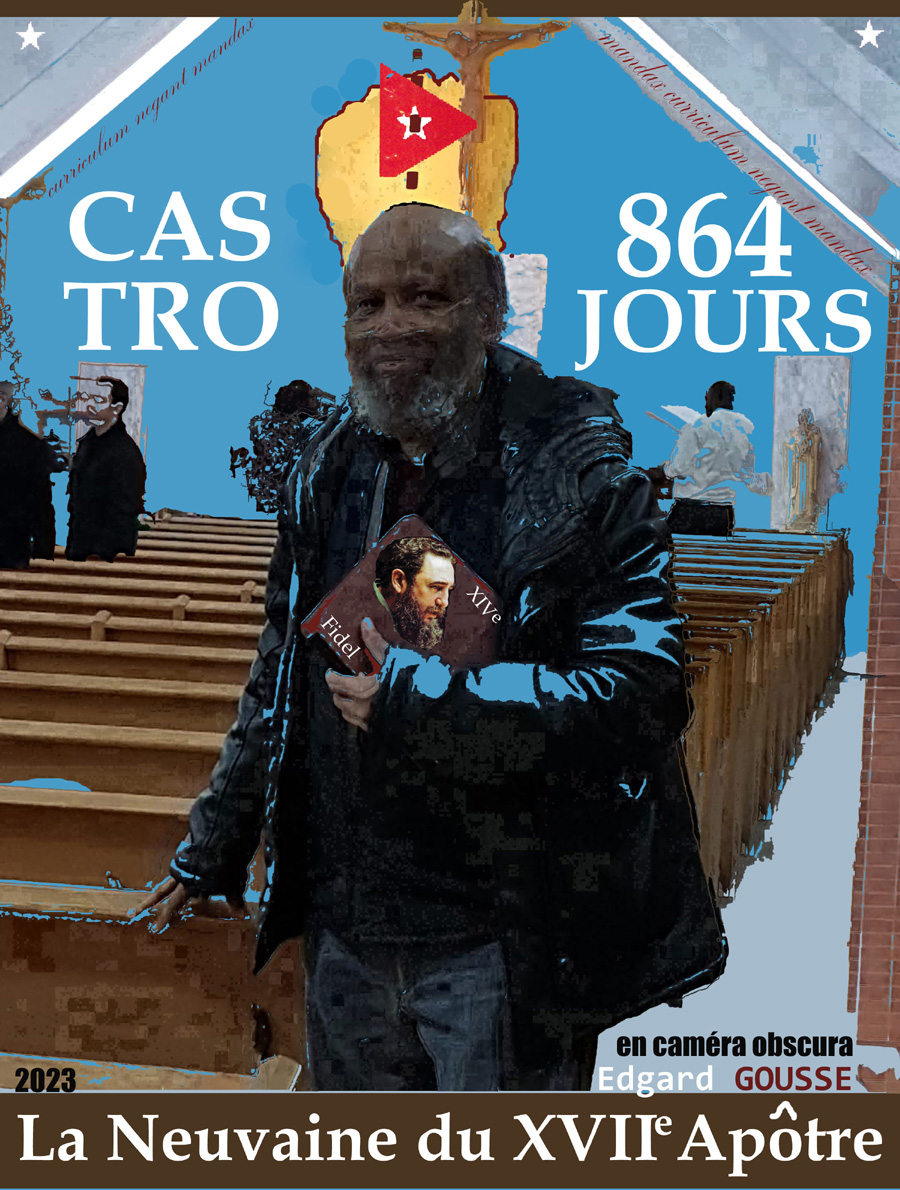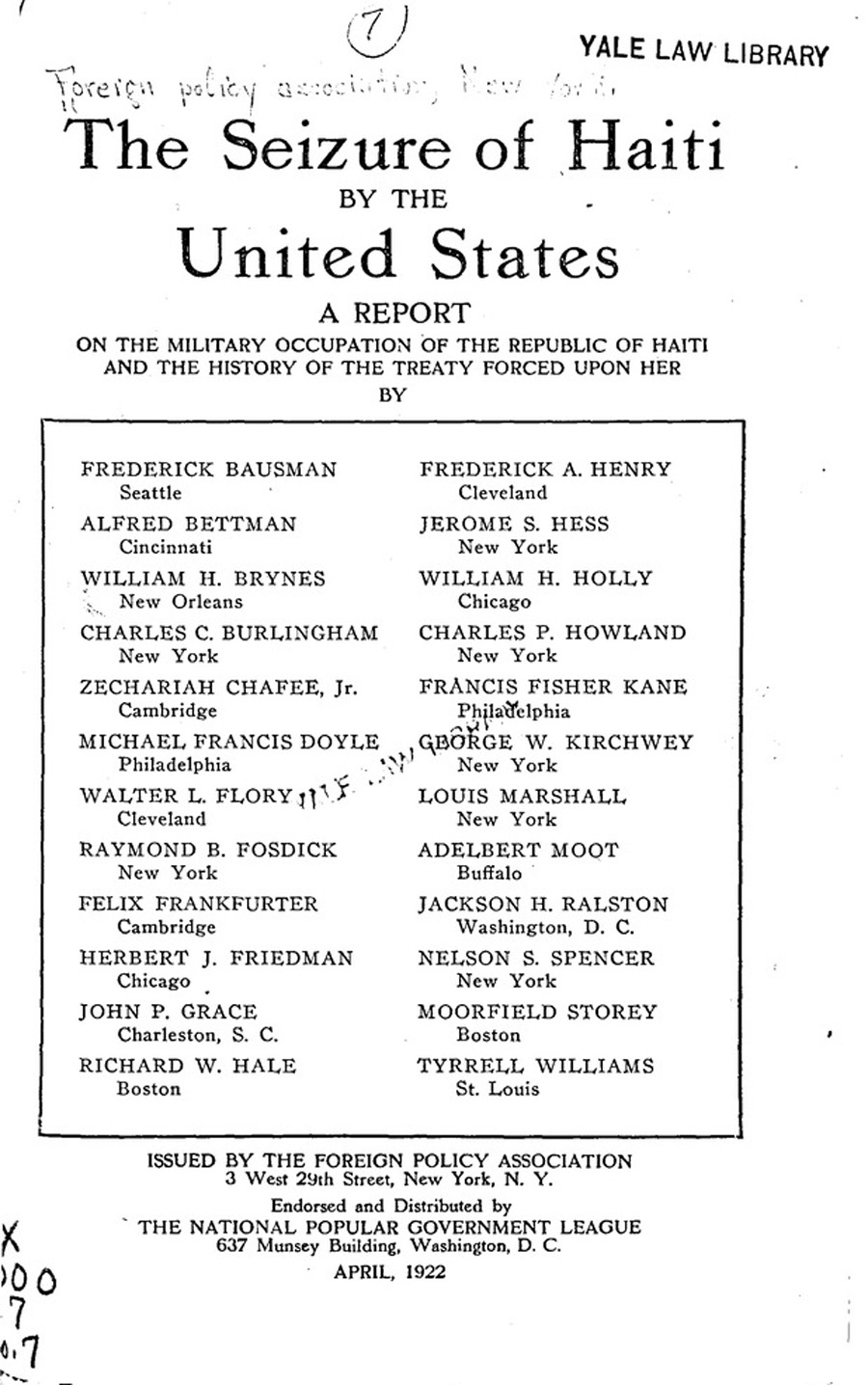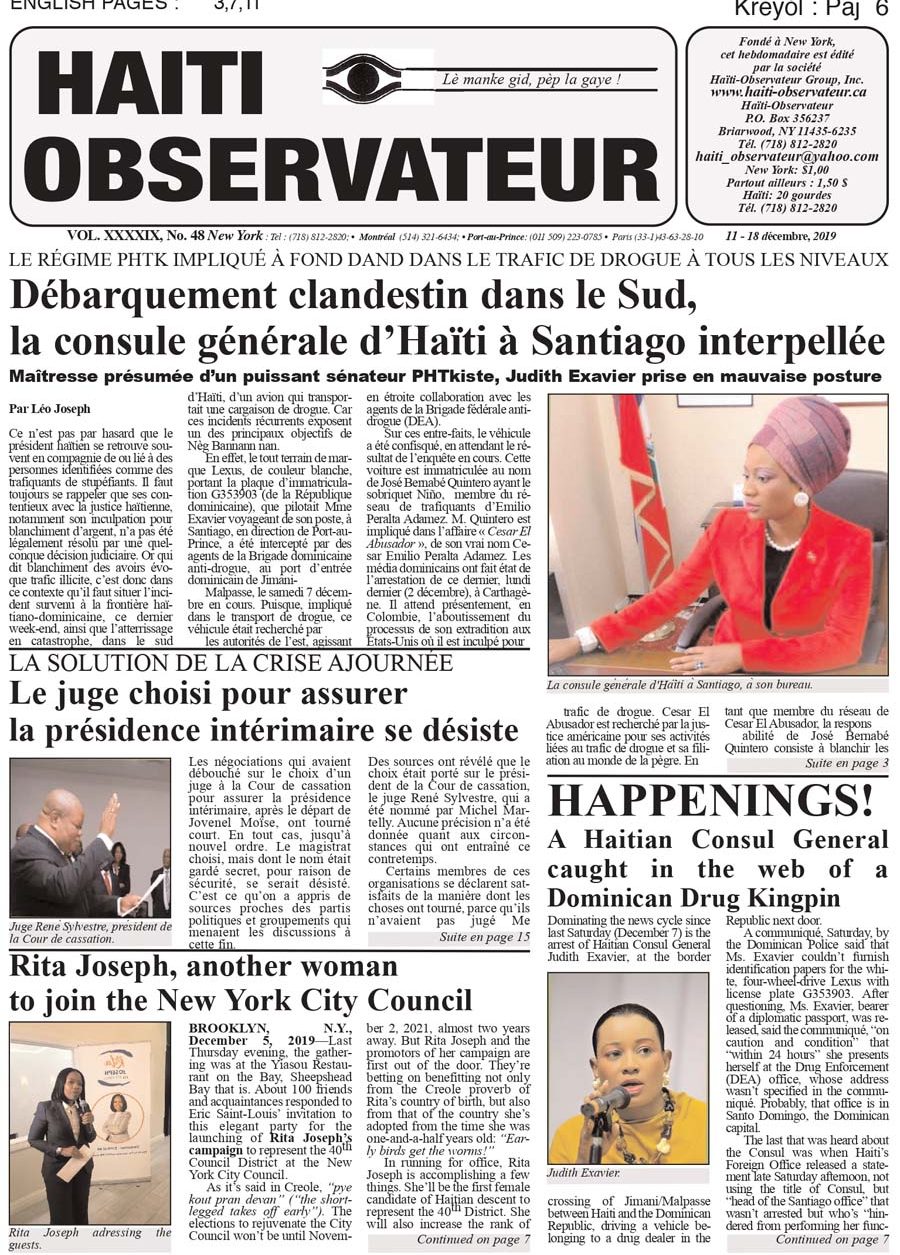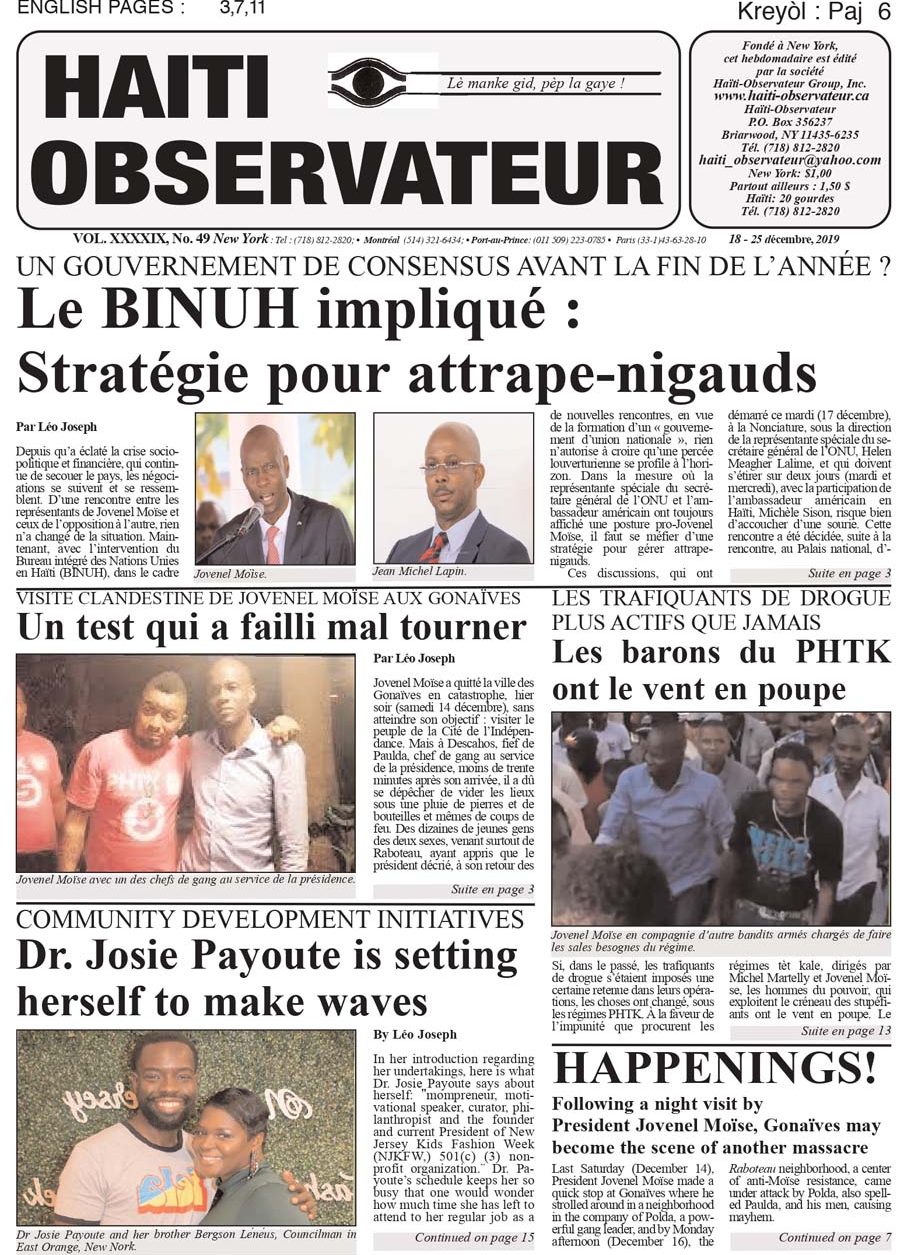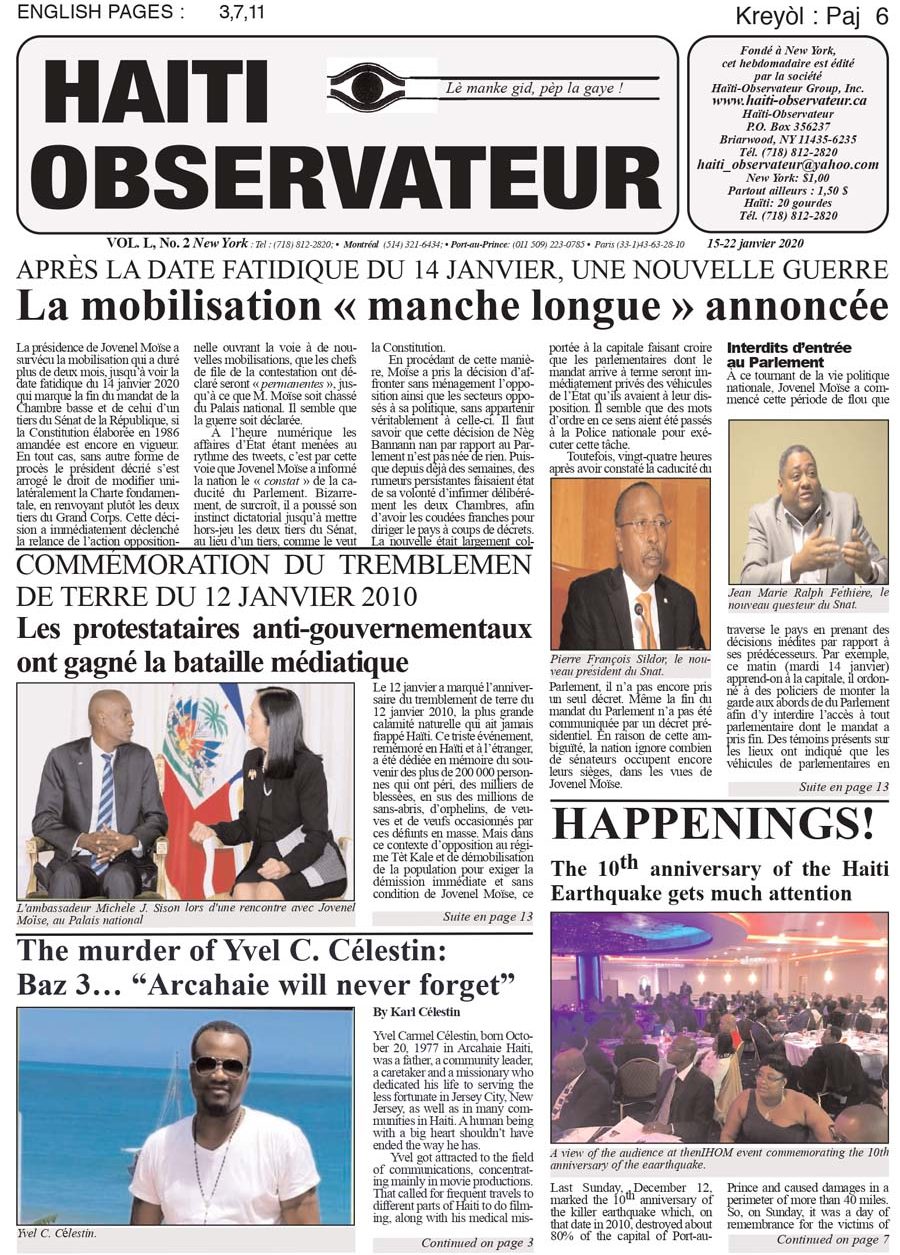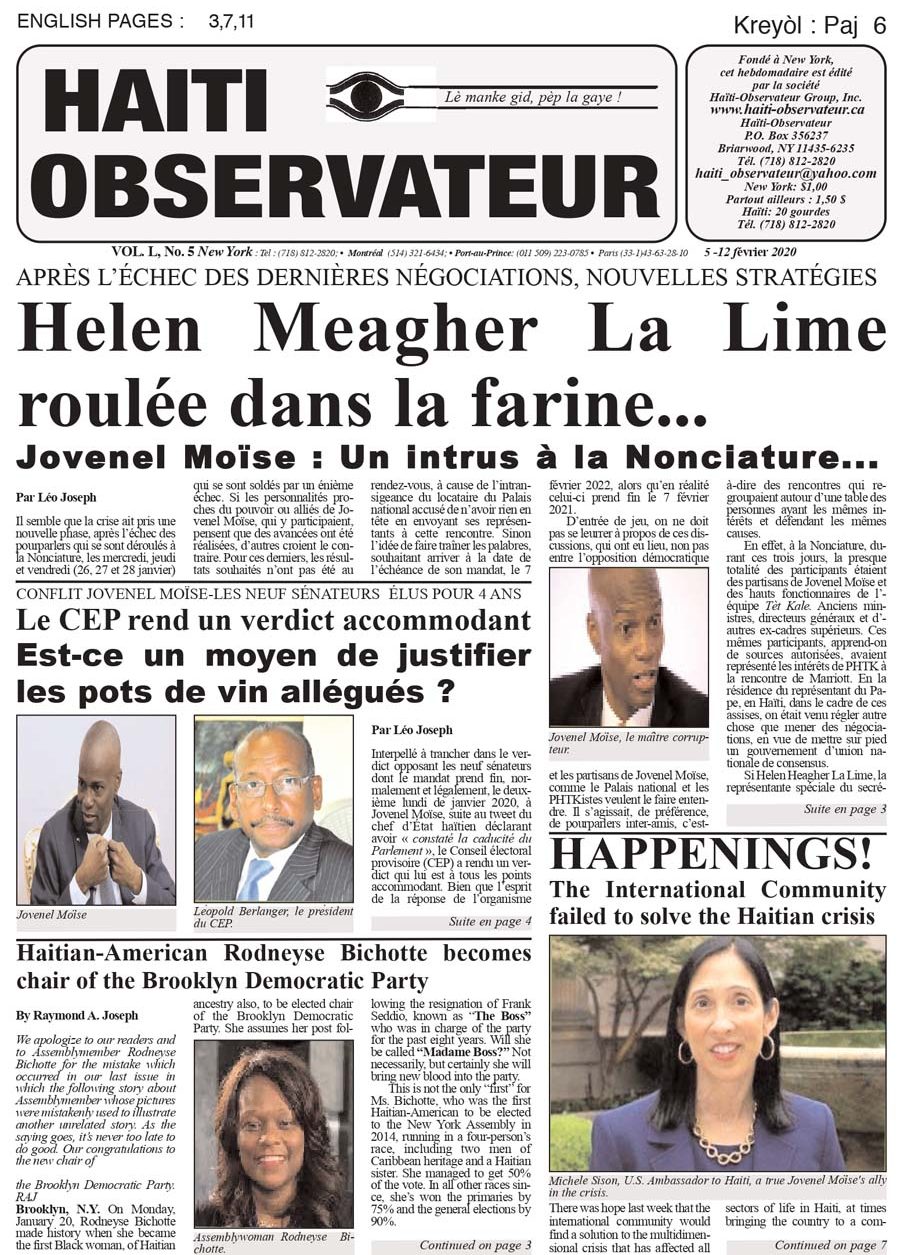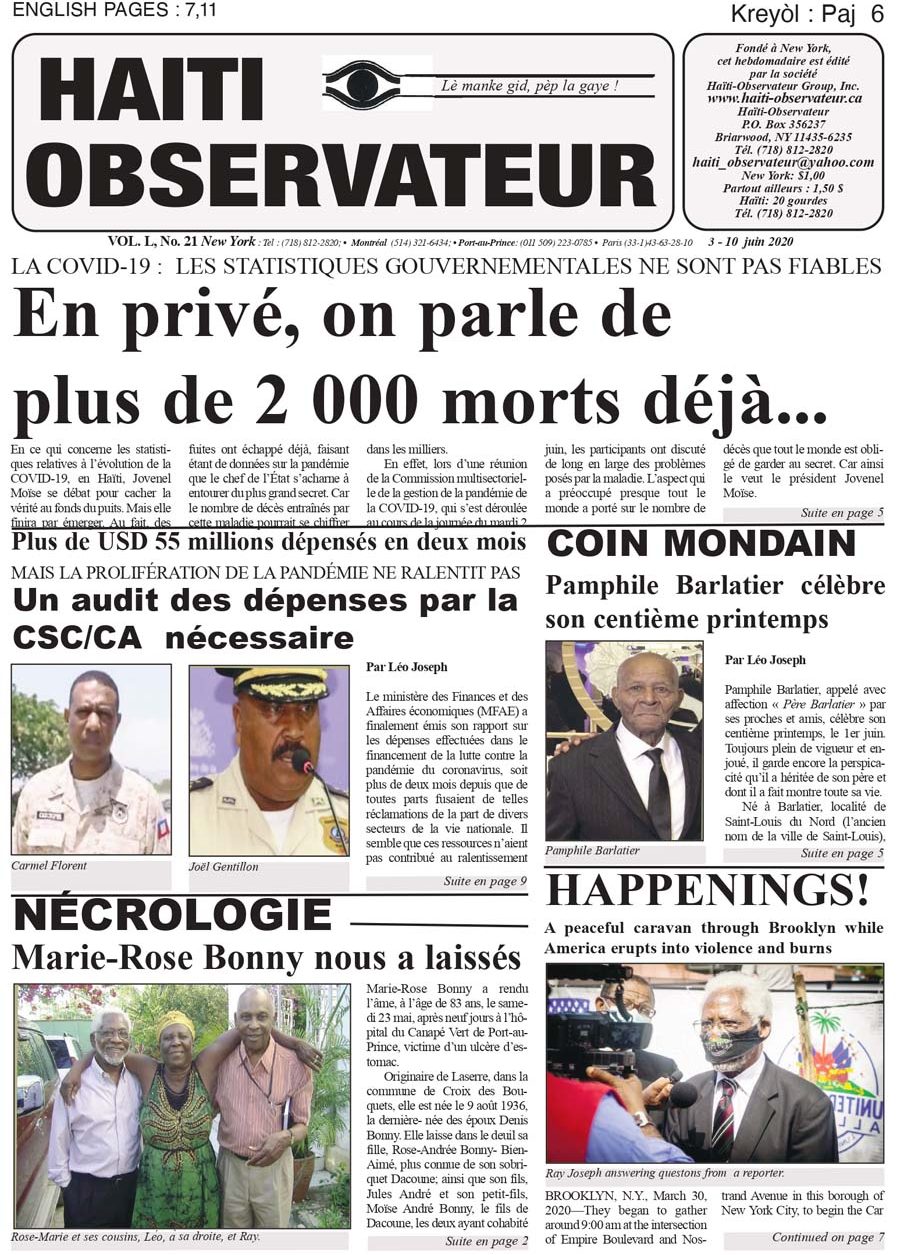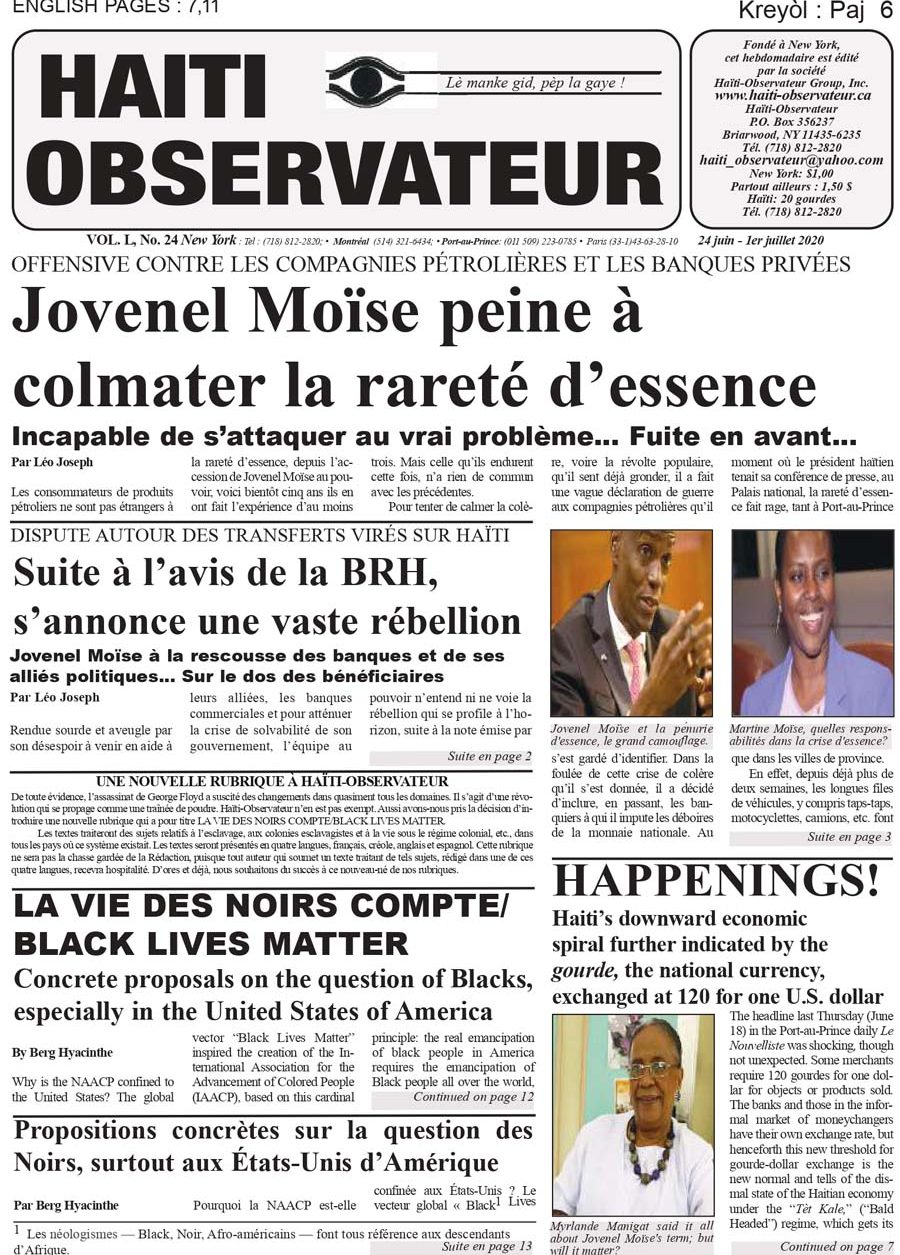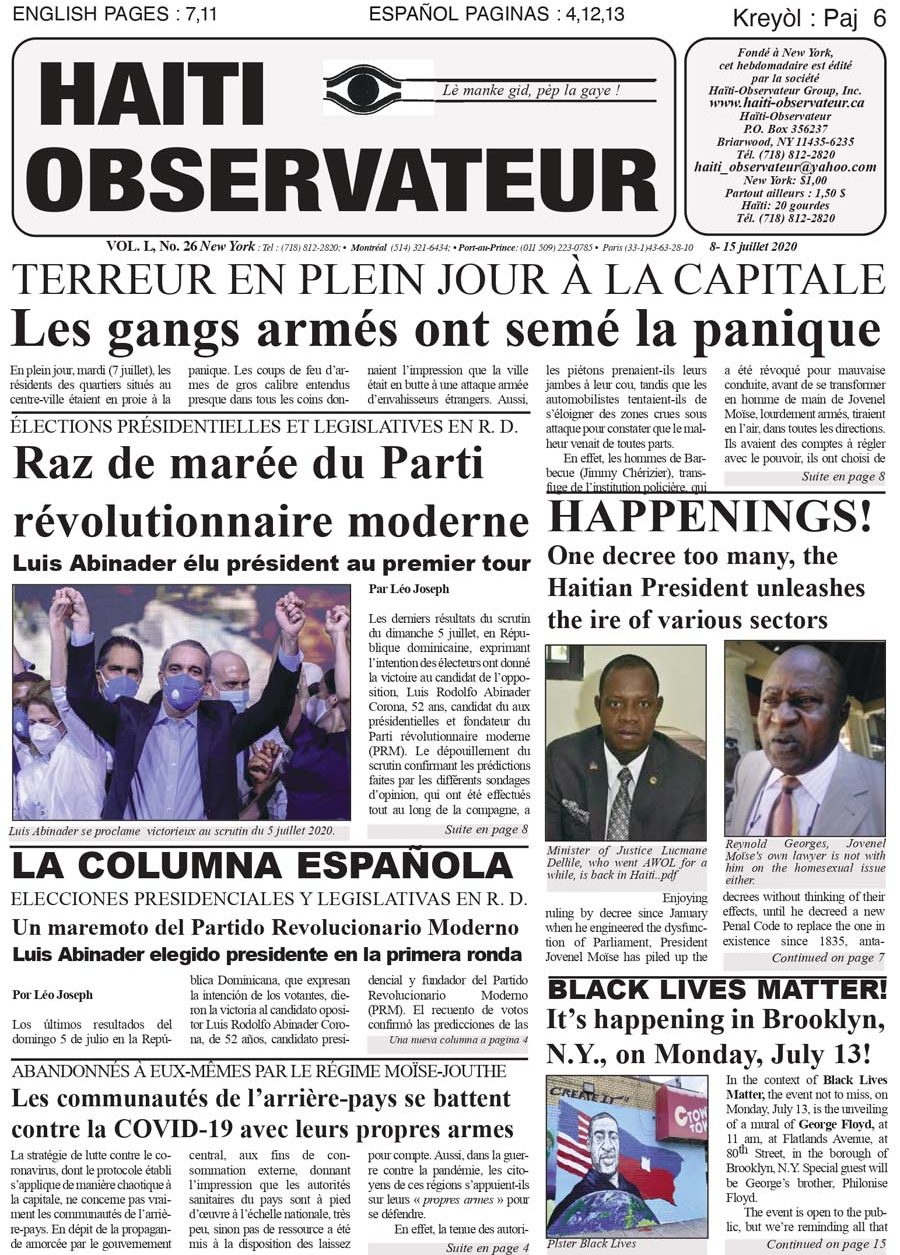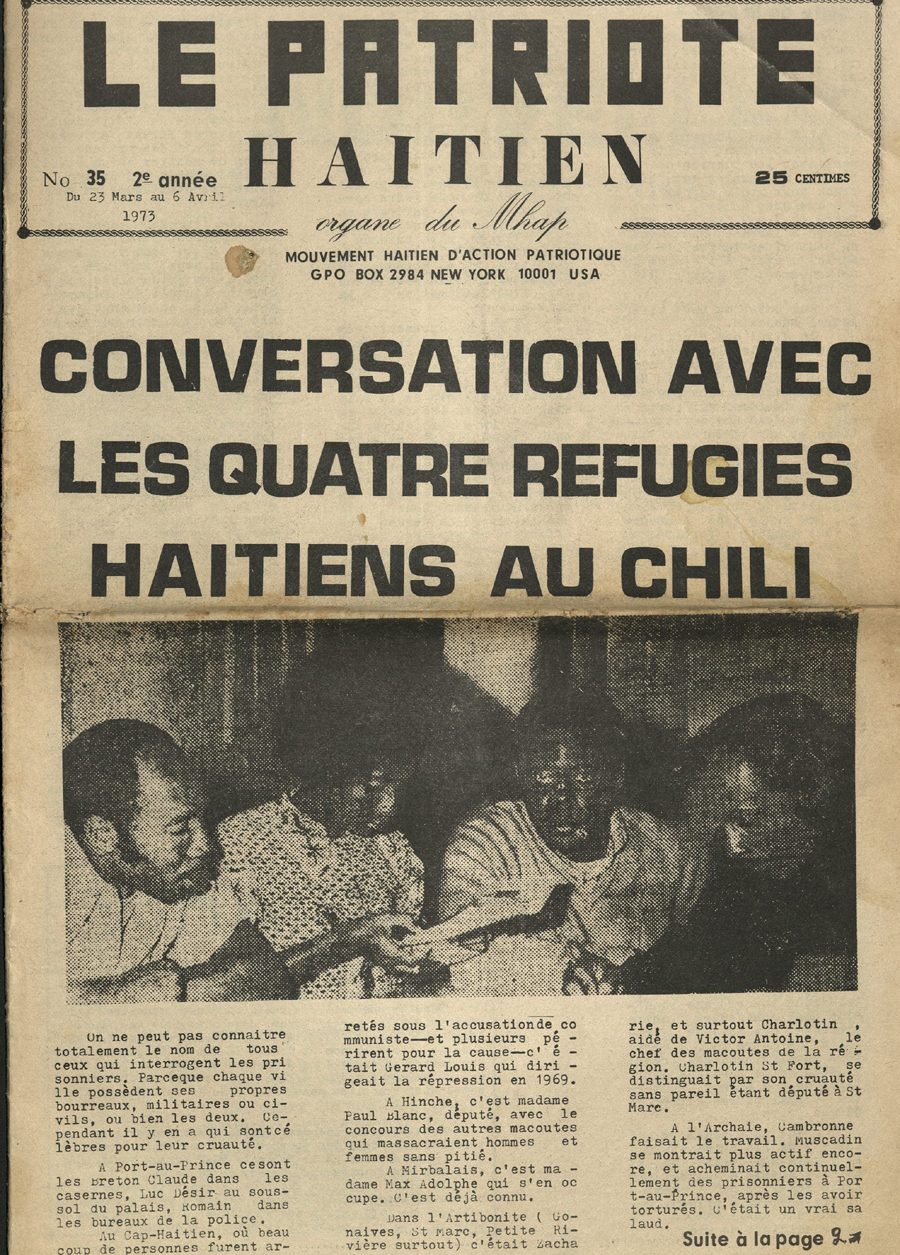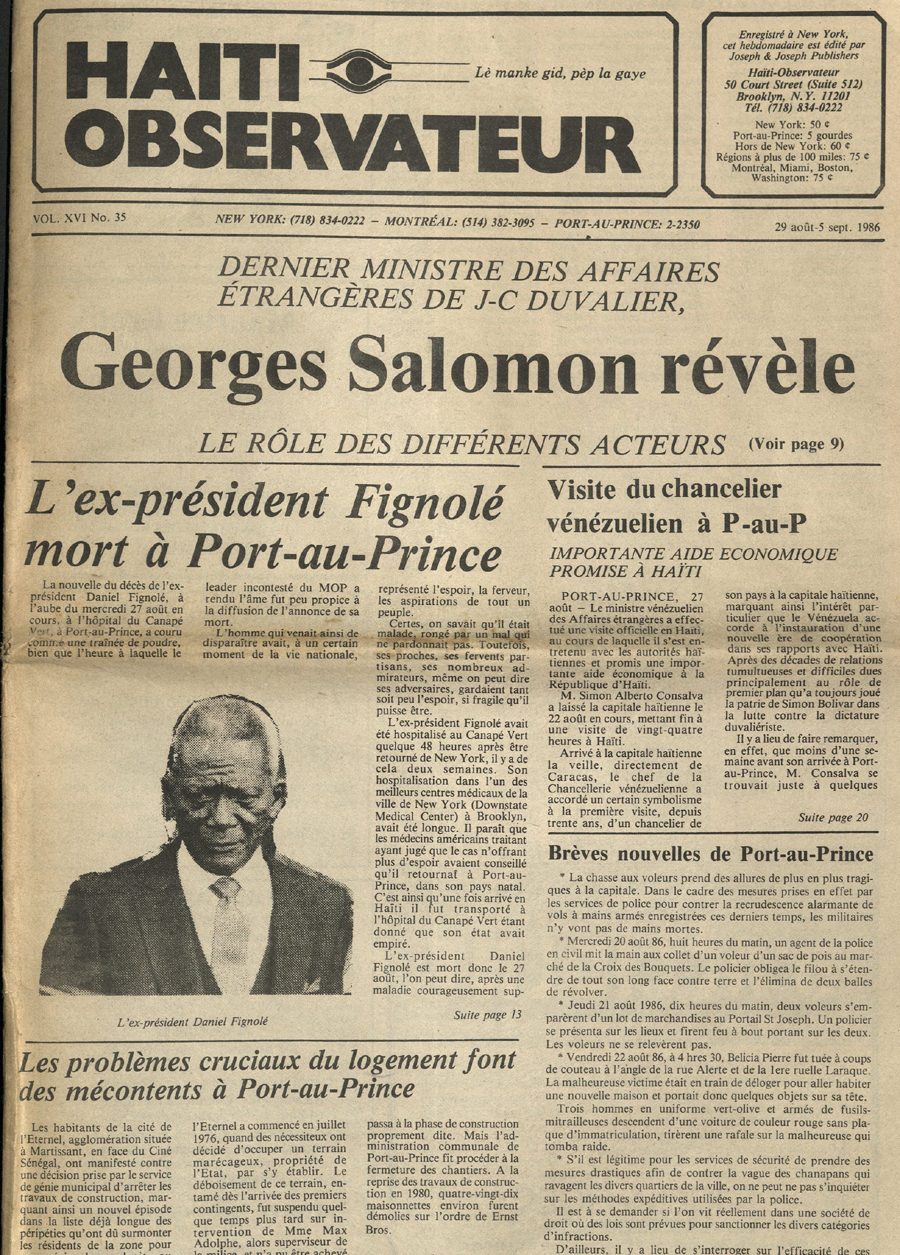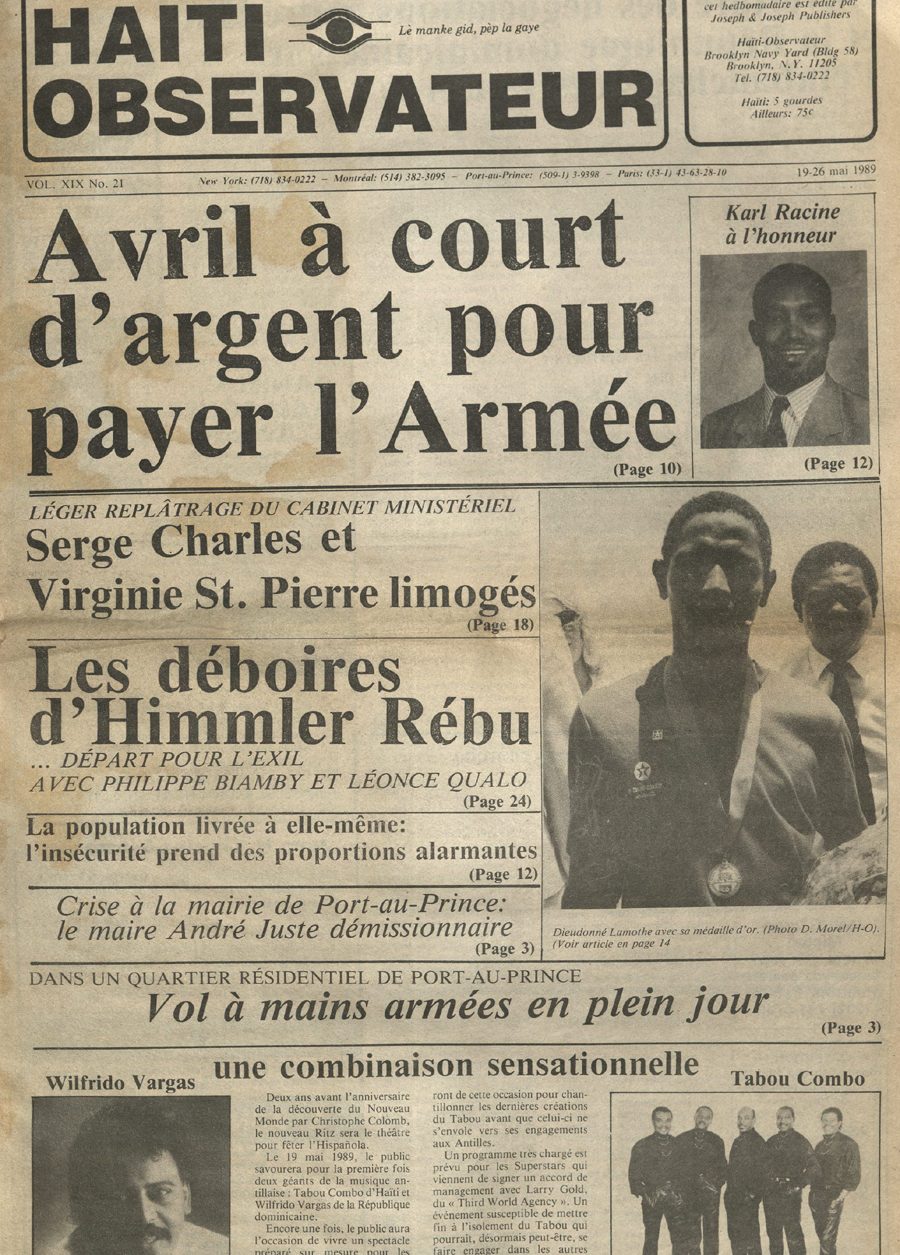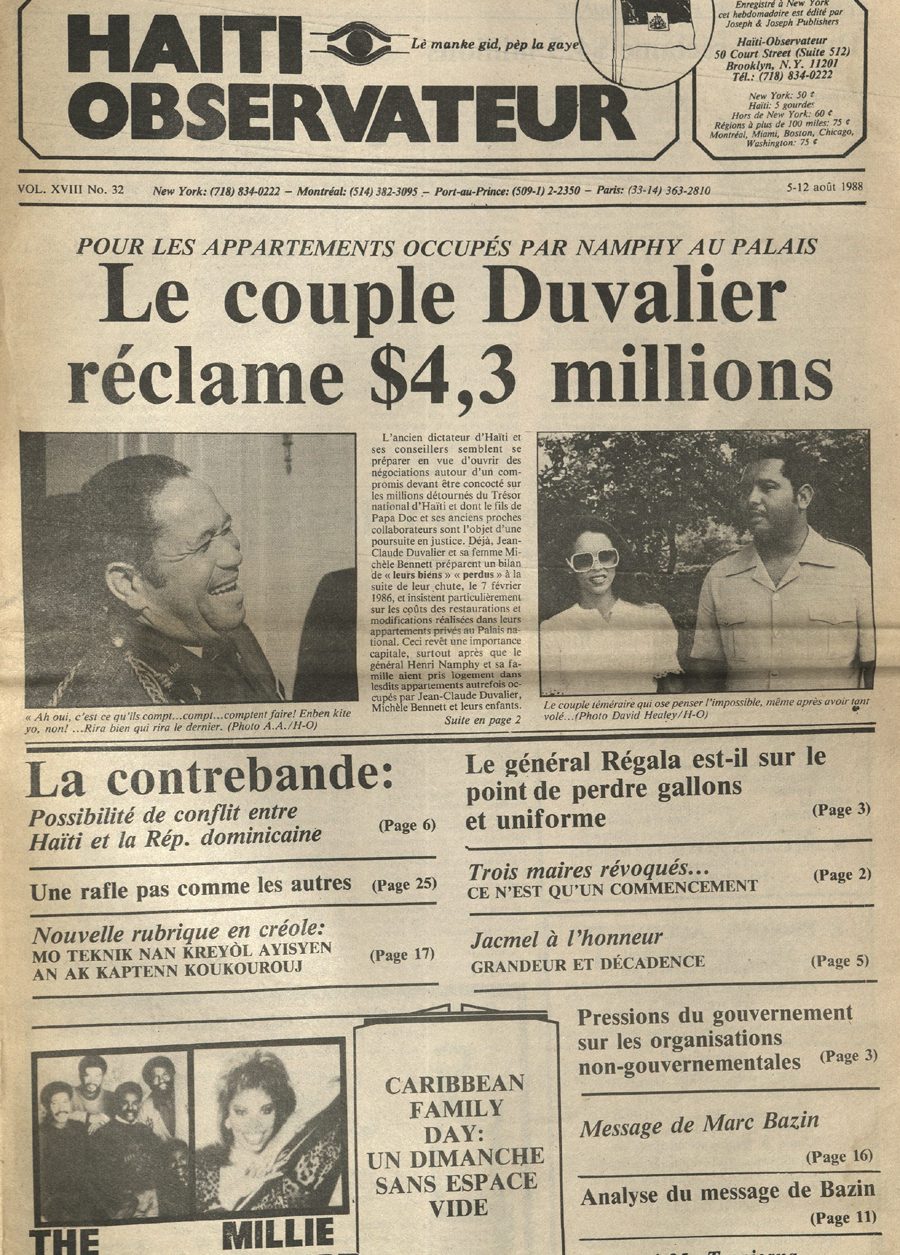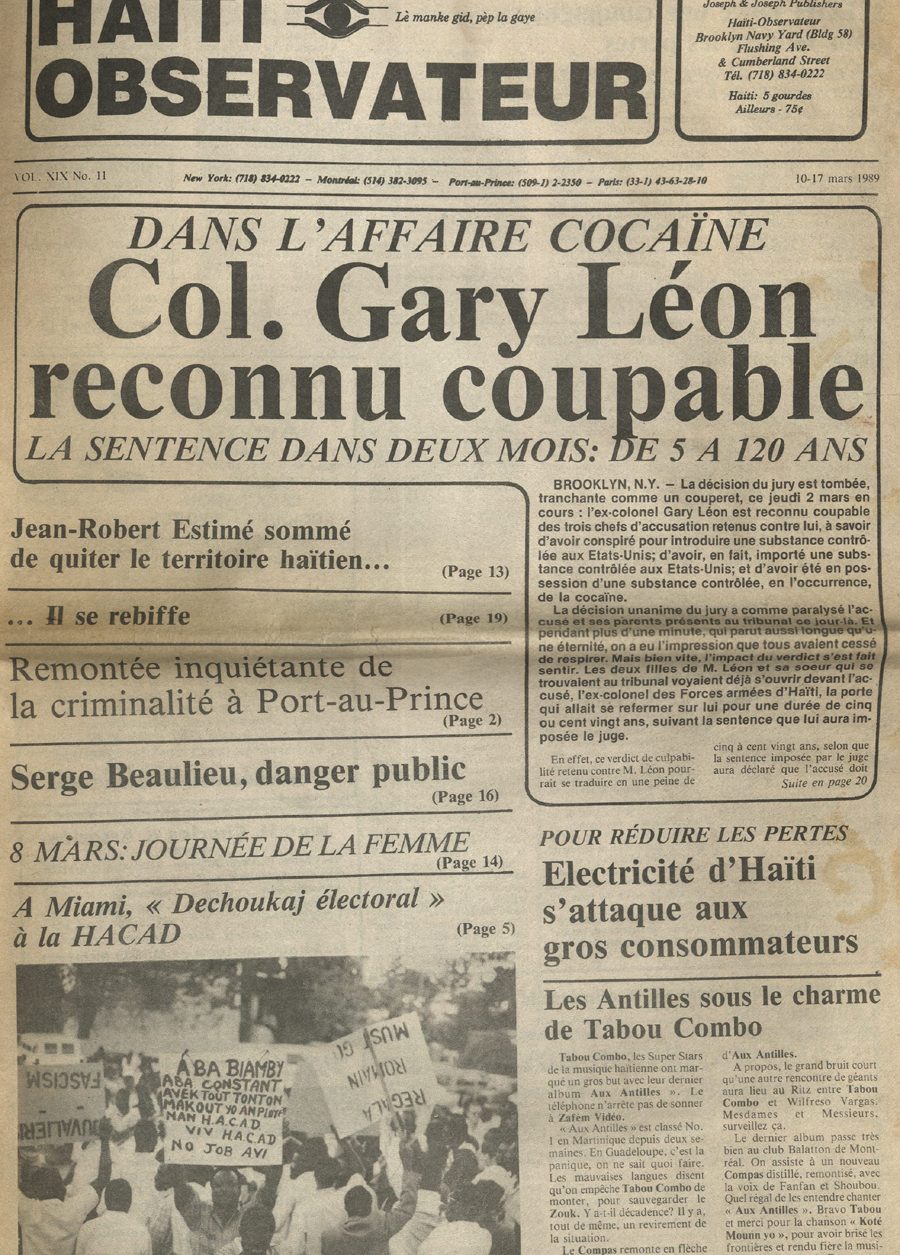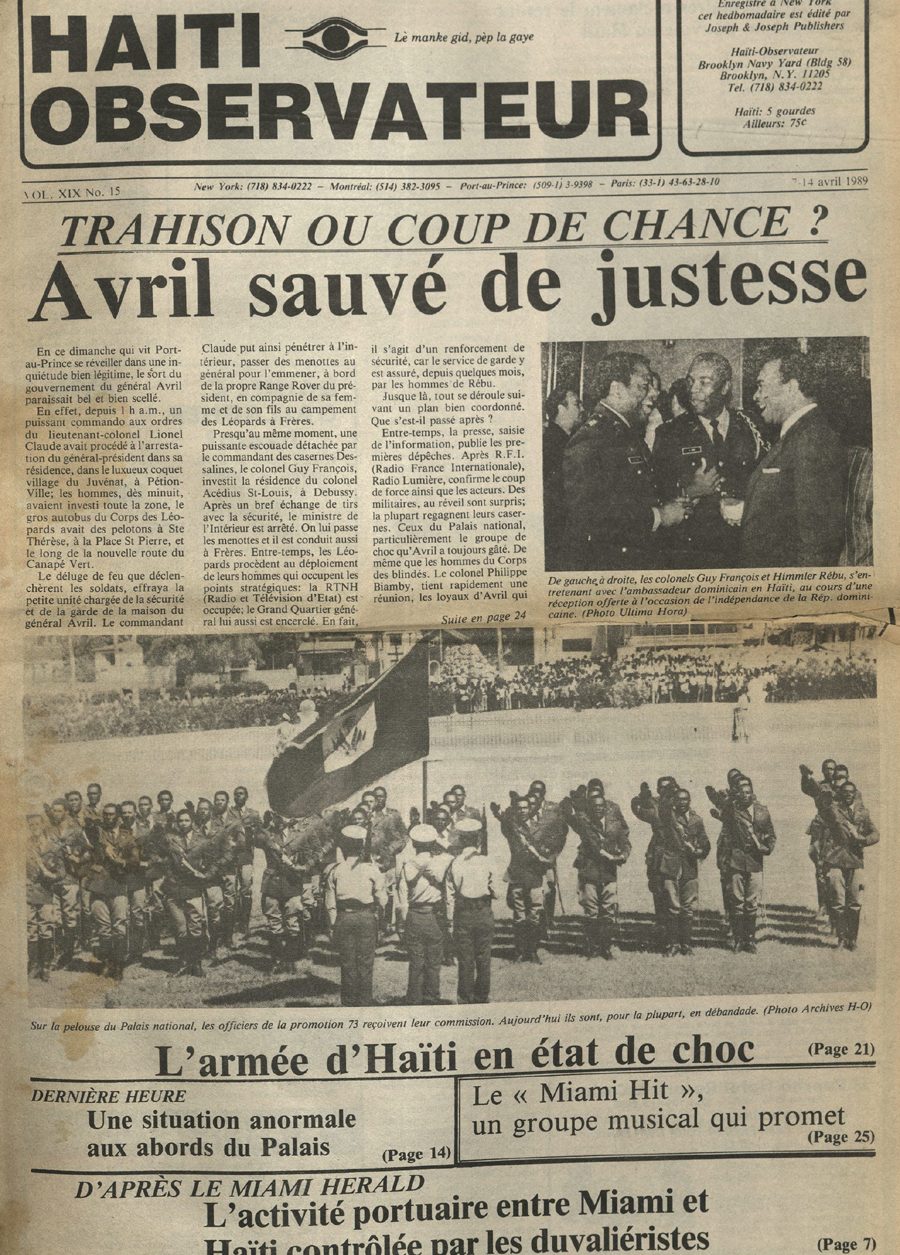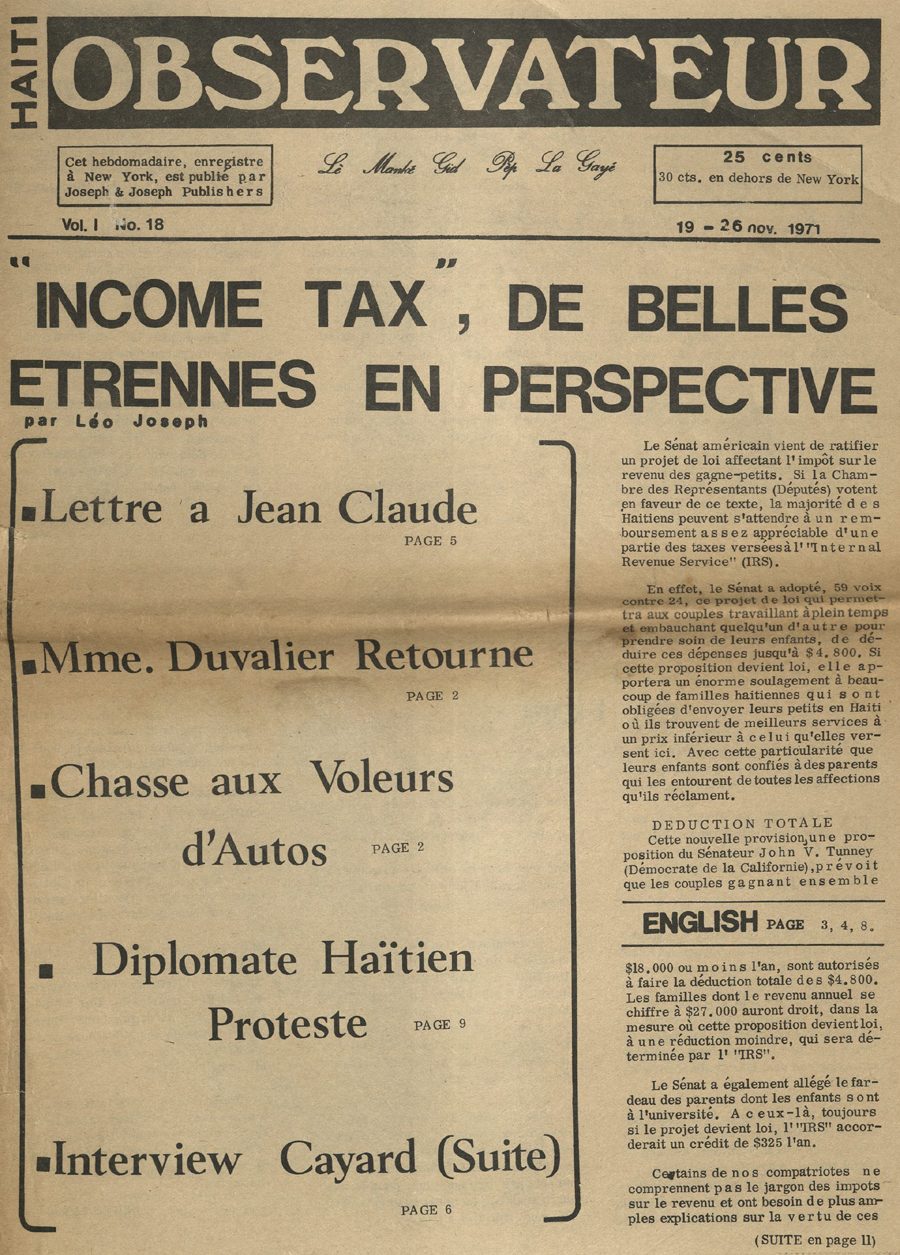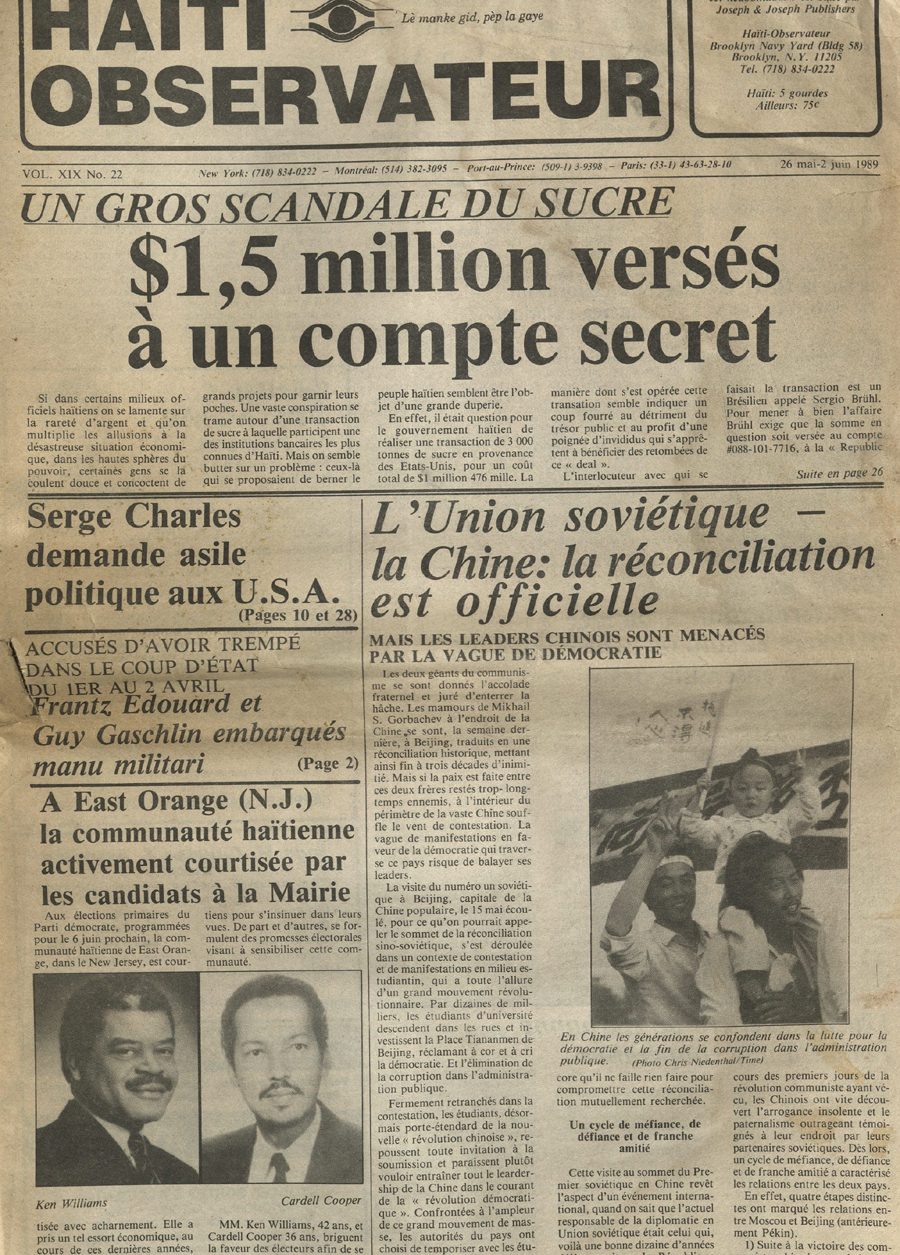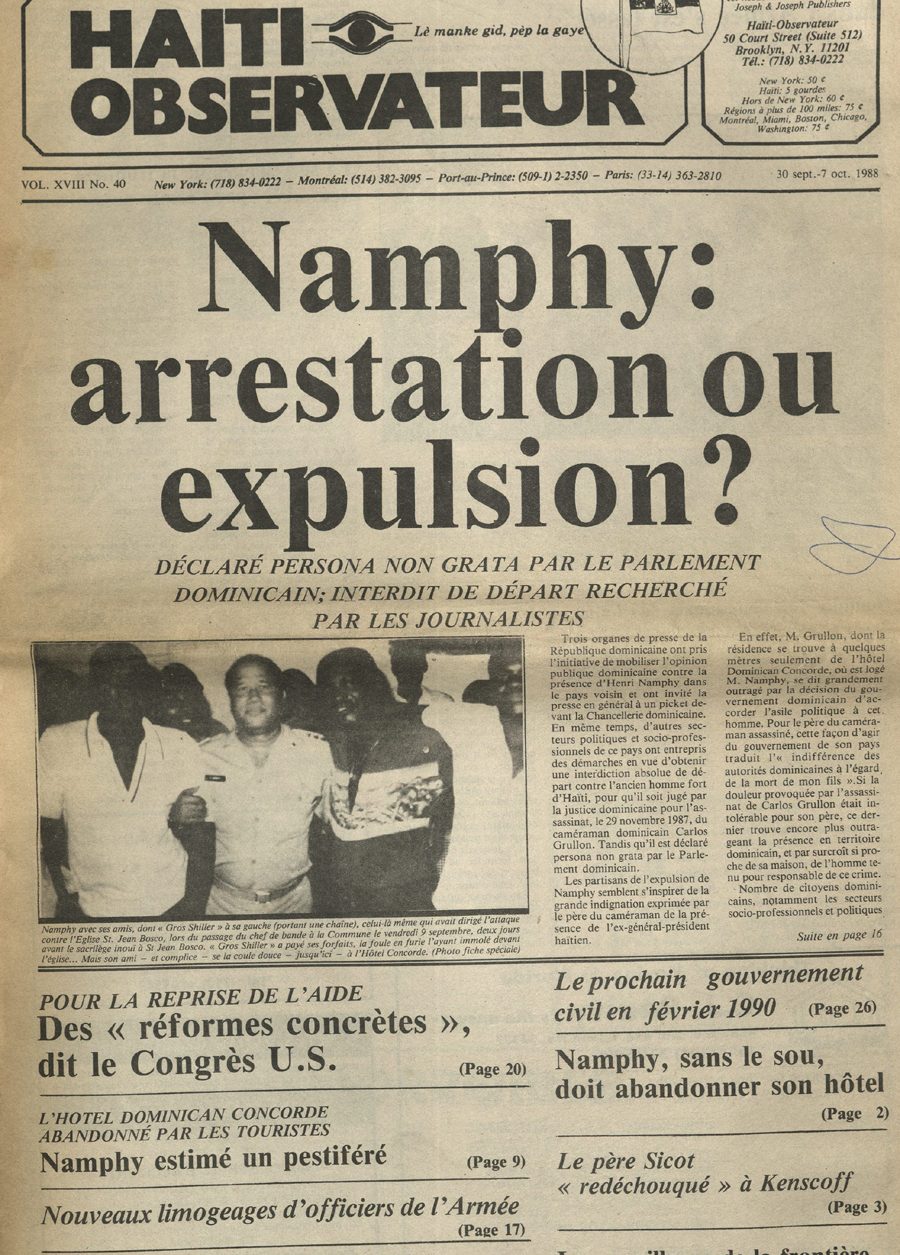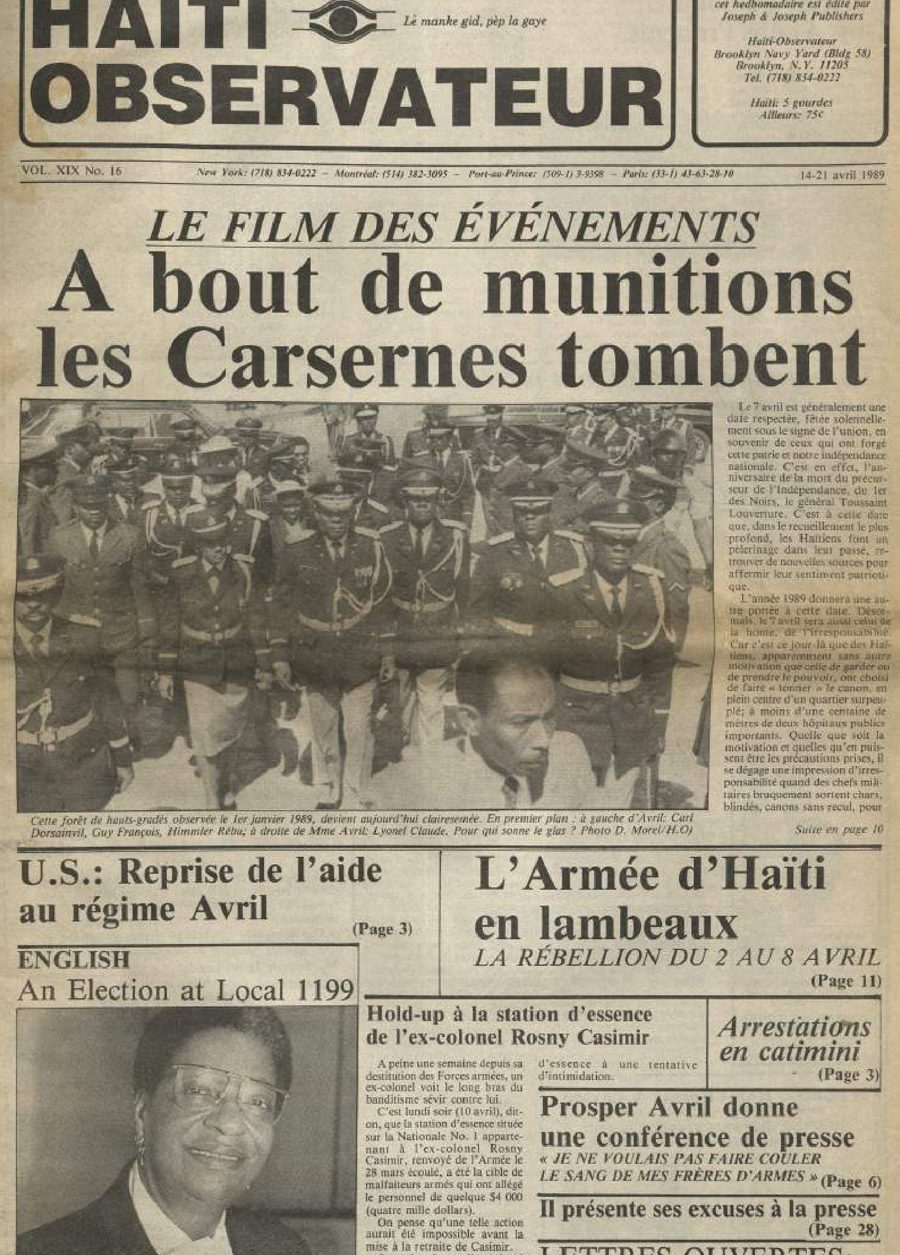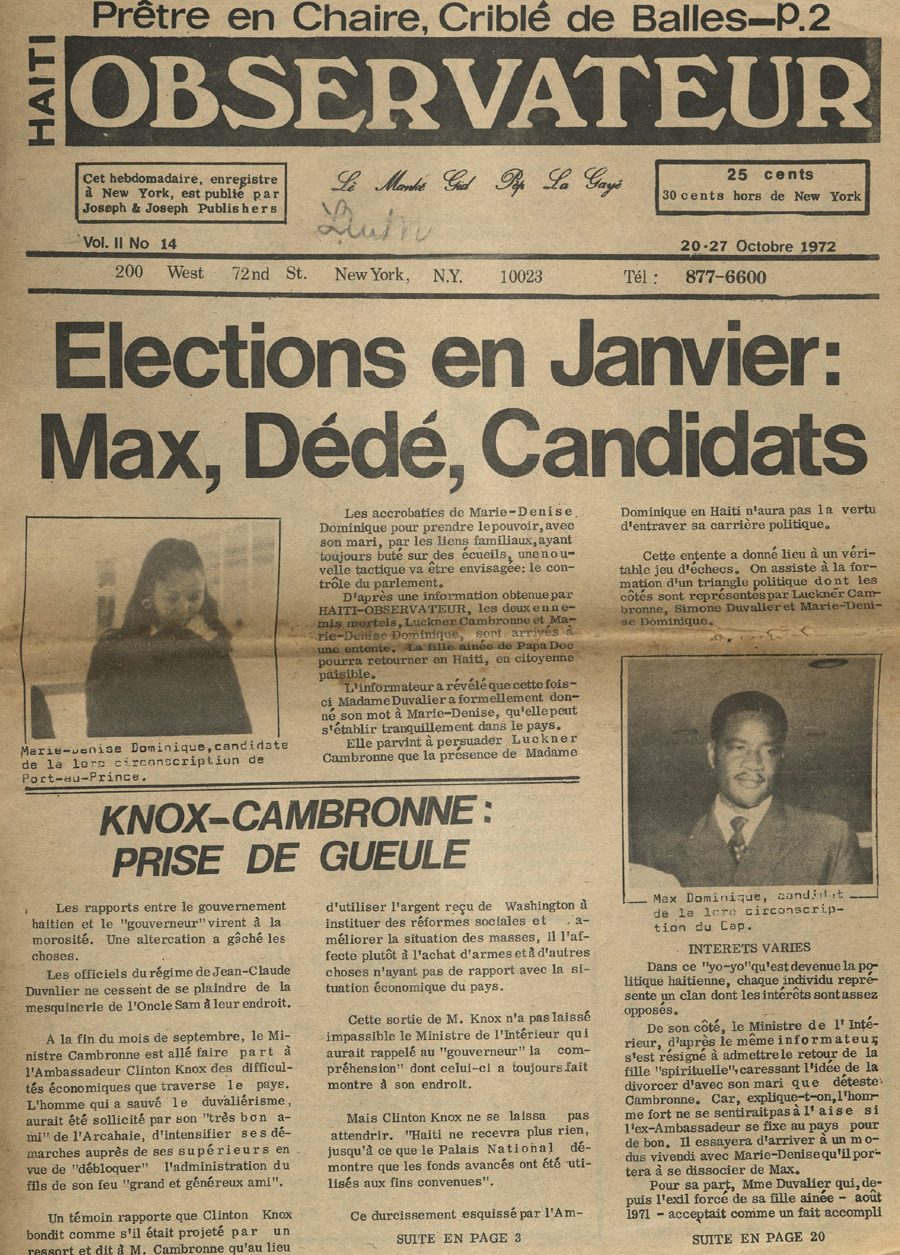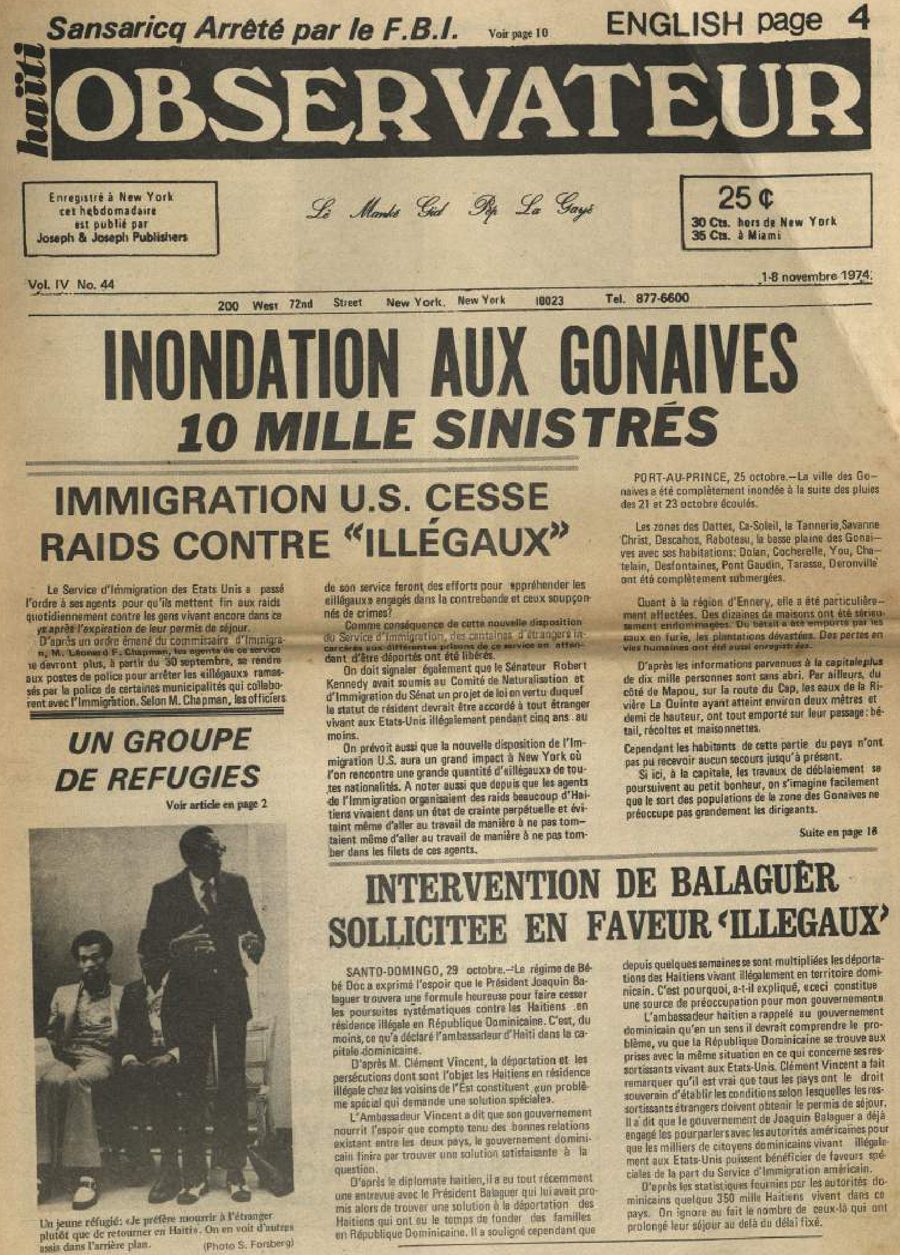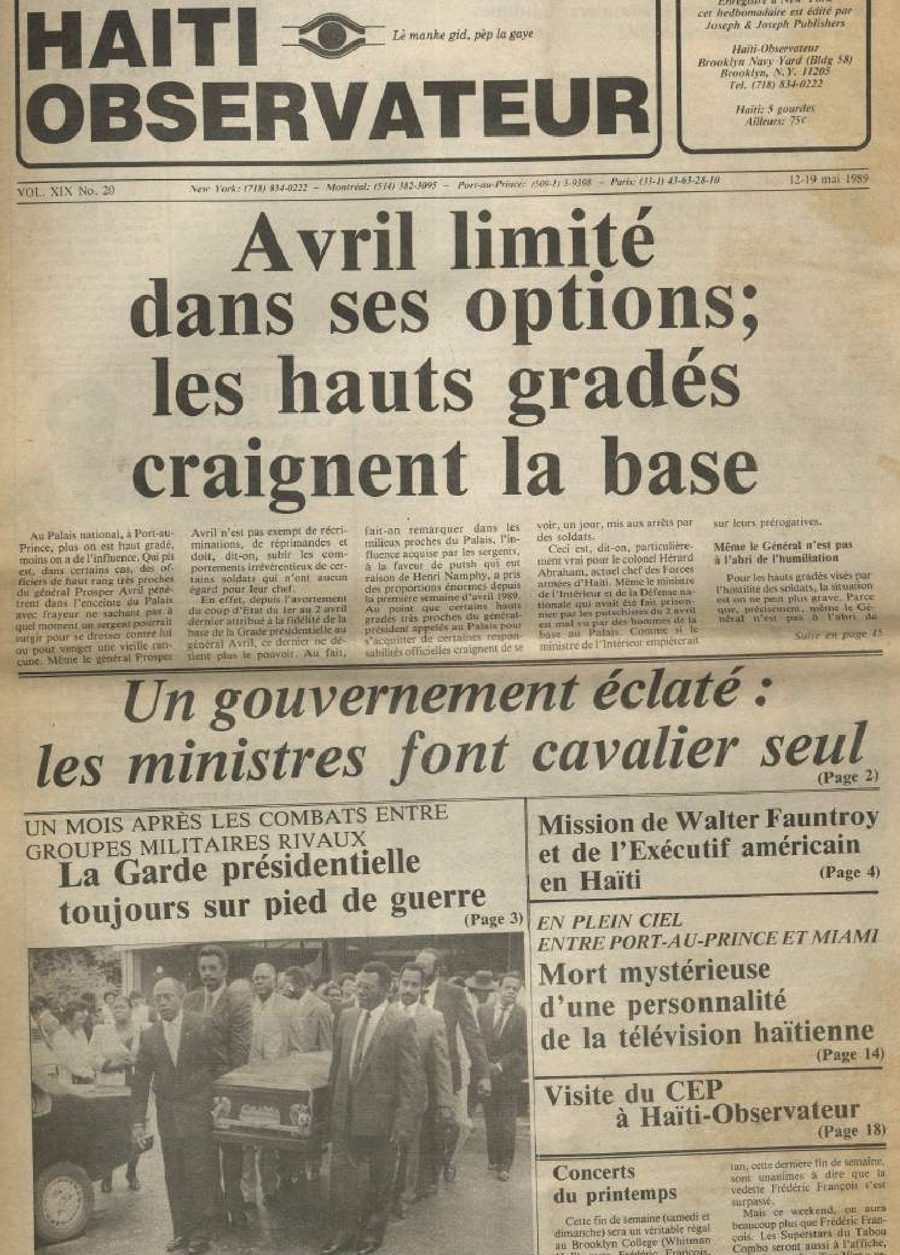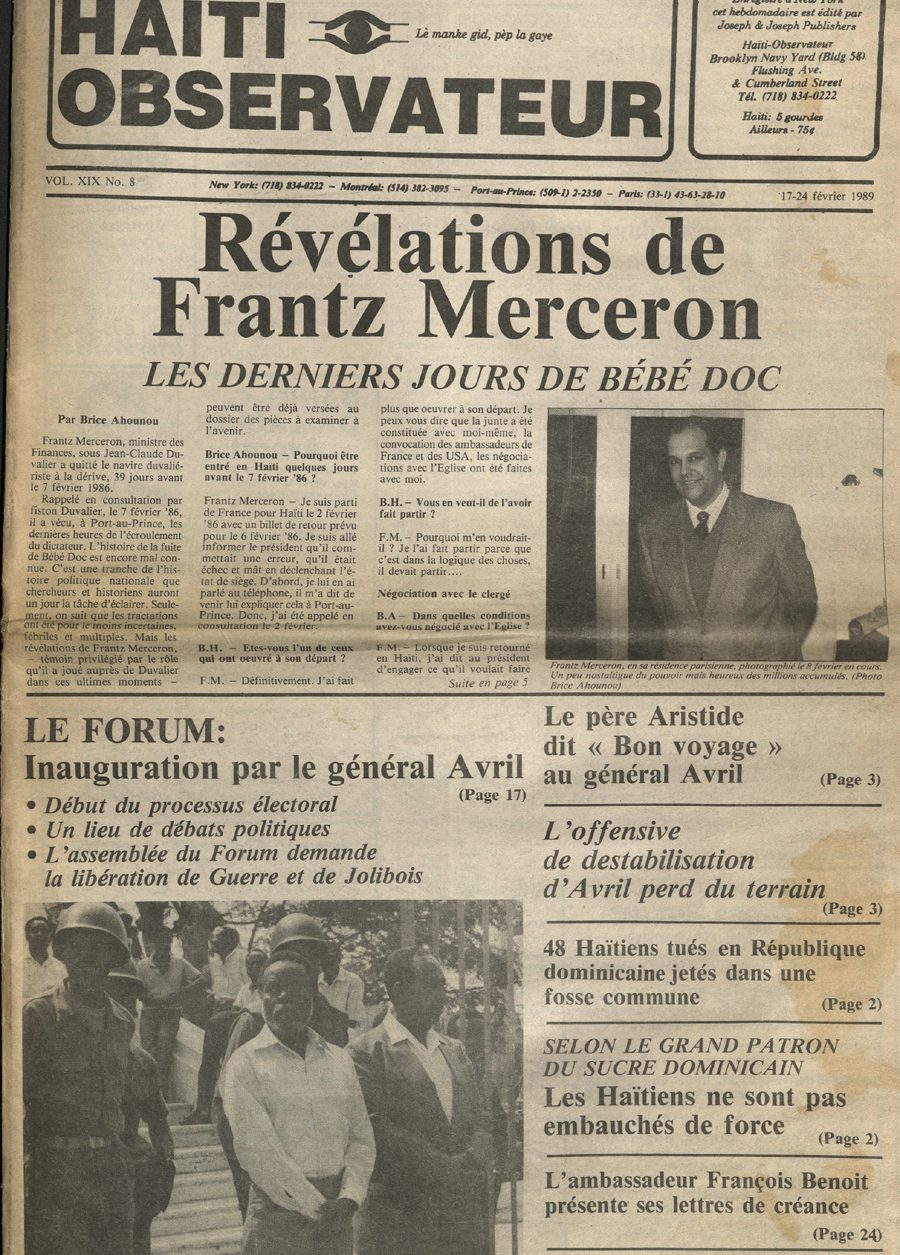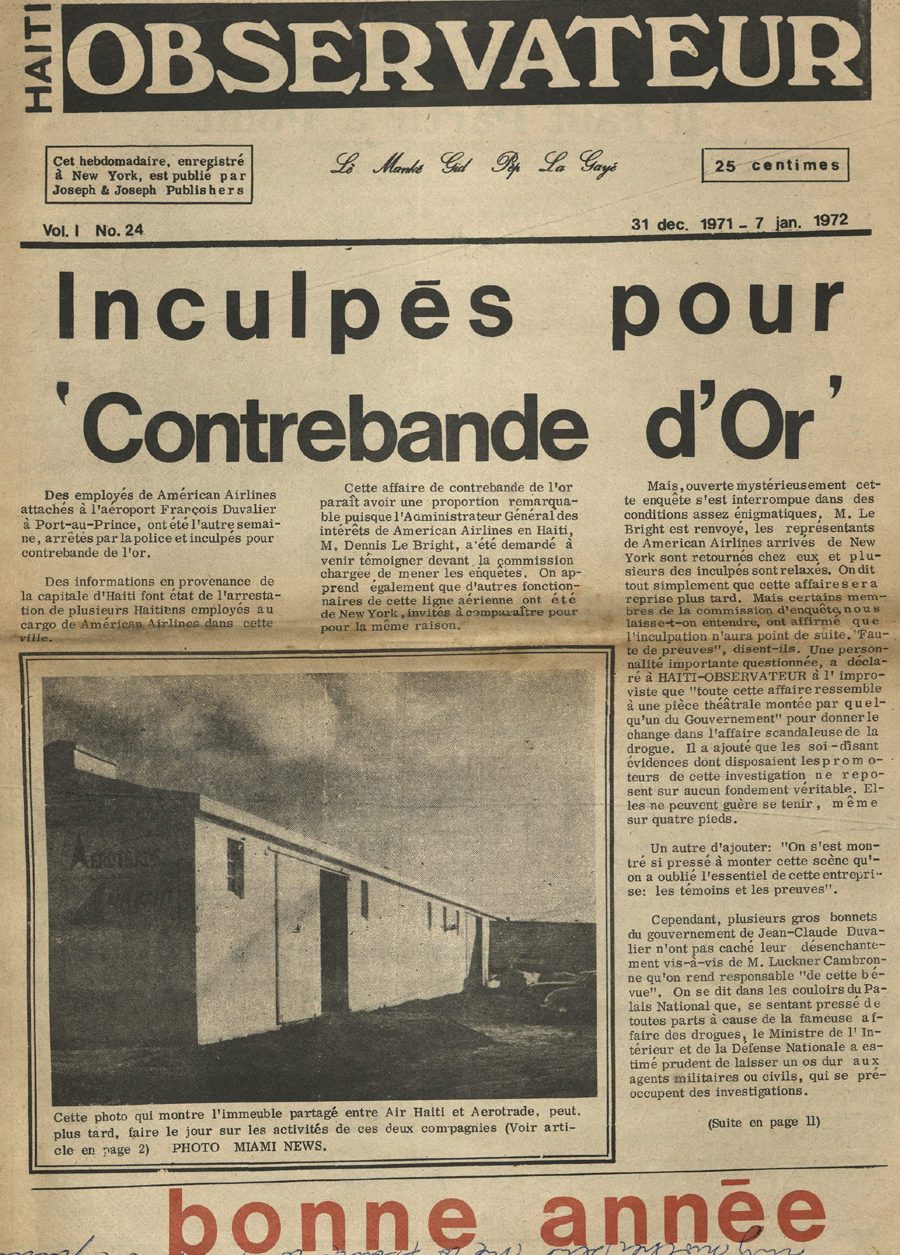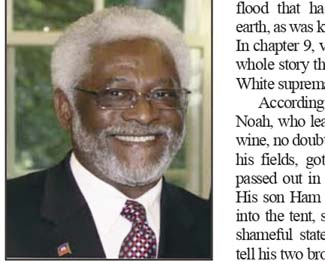
HAPPENINGS, 9-16 August 2023
Kenya’s offer to take the lead of an international force to solve the gang crisis in Haiti turns into a referendum on Ariel Henry
- By Raymond A. Joseph
While Kenya is being applauded by many for offering to take the lead of an international force that will undertake the urgent task of dismantling the heavily armed gangs that have caused death and desolation in Haiti, allegedly controlling 80% of the capital of Port-au-Prince, questions are raised about the future of the de facto Prime Minister Ariel Henry, who had asked for the international force since last October, in a formal request to United Nations Secretary General António Guterres, who has been stymied thus far in finding takers for the task.
Kenya made its offer on Saturday, July 30. Instantaneously, that became the major news item in Haitian circles, closing the tumultuous last week of July when the United States ordered non-essential employees at its Embassy in Port-au-Prince to come home, and also urged American citizens to leave Haiti. It’s in that context, that two days later, on August 1 st , Canadian Prime Minister Justin Trudeau made a declaration that some interpreted as if he were questioning the role that the neurosurgeon Haitian Prime Minister Ariel Henry would play in the unfolding development.
That day, at a press conference in Hamilton, a suburb of Toronto, Mr. Trudeau reportedly “accused the de facto government of Ariel Henry of not taking seriously the security and political developments in Haiti, despite various aid packages and assistance provided by Canada to Haiti.” (Translation ours from the French item in Le Placentin).
The Prime Minister’s statement is seen as throwing cold water on any foreign military action that would tend to undergird a leader that is so nonchalant about the security of his country and who doesn’t pay attention to political developments. That has been so during the past two years, since he was named to the post, on July 20, 2021 by the CORE Group of Western ambassadors, in Port-au-Prince, including the Canadian ambassador.
To soften his Prime Minister’s blow, the next day, the Canadian ambassador in Port-au-Prince, Sébastien Carrière, is quoted to say, “Canada is ready to work with Kenya and all the other partners, to ensure the success of the imminent reconnaissance mission and the eventual subsequent deployment, under the Superior Council (sic) of the United Nations.” Supposedly that’s a reference to the Security Council, which has yet to approve the deal.
The Haitian Prime Minister in cahoots with gangs Whatever happens, information regarding relations existing between the Prime Minister and the gangs, especially with Vitel’homme Innocent, is troublesome. He heads the gang known as Kraze Baryè, (Tear down the Gates). Last week, as was reported in HO’s editorials, both in French and in English, that gang leader, who unleashed an attack on peaceful citizens in the Tabarre area, not far from the American Embassy in Port-au-Prince, has the private telephone of the Prime Minister, with whom he’s in contact whenever necessary. He also has similar contact with Frantz Elbé, who’s the Director General of the Haitian National Police (HNP).
To be remembered, on July 25, the Police had moved forcefully, using clubs and tear gas, to clear the front of the U.S. Embassy in Tabarre, of hundreds of people, including women, children and the elderlies, who had sought refuge there against the gang Kraze Baryè, which had attacked their homes not far from the Embassy. In part, that was the reason for the American authorities to order their citizens to leave Haiti
immediately.
It has also been established that vehicles spotting government and official plates of the Police have been seen in the convoys of Kraze Baryè. Moreover, the human rights defender Pierre Espérance, of the National Network for the Defense of Human Rights (French acronym RNDDH), stated: “On July 16, 2023, at around 8 pm, twelve vehicles bearing Service de l’État and Officiel license plates drove into the stronghold of Vitel’homme Innocent, where a meeting lasting several hours was held.”
That would be unbelievable, had the information not come from such an impeccable source as Pierre Espérance, who added: “Since then Vitel’homme Innocent’s attacks on the populations of Croix-des-Bouquets, Delmas, Pétionville and Tabarre have intensified.”
A cynical game to gain the sympathy of the International Community According to some analysts, the government orchestrated the attacks by the gangs on the civilian community to show the necessity of international intervention. In the cynical game being played, the pro-government gangs would be protected in any campaign by an eventual international force which would concentrate on fighting the gangs considered hostile to Ariel Henry’s government.
In that light, one wonders whether those in the “reconnaissance mission” mentioned by the Canadian ambassador, before deployment of the Kenya contingent, will conduct discussions with the various sectors in Haiti, both political and civil society groups, including those who believe that Ariel Henry must go, before they take the decision to enter into the quagmire that Haiti has become, under the glare of various U.S. missions since 2004.
Indeed, well-meaning in their decision to help Haiti, our brothers from Kenya and other Black states, including from CARICOM countries, that indicate they would also provide troops for joint action, could be sacrificing the lives of their young recruits in a campaign intended to prolong Ariel Henry’s
illegitimate stranglehold on power, and not really creating conditions conducive for free, credible elections.
Thus, the popular saying in Haiti these days: “To defeat the sandal-wearing gangs and spare the tie-wearing ones is a no-win solution!”
A word to the wise should be sufficient.
RAJ
________________________________
Some prominent Haitian personalities have left us
In the past two weeks, several Haitian personalities have left the scene, having made the eternal voyage.
Boniface Alexandre. Last Friday, August 4, the death of former President Boniface Alexandre at his home, in a suburb of Port-au-Prince, was announced on social networks, confirmed by his son-in-law Jean Michel Brunache. He was 87 years old. We present condolences to his family.
Mr. Alexandre, a law professor, who was president of La Cour de Cassation, as Haiti’s Supreme Court is called, became Haiti’s President, constitutionally, in 2004, following the ouster of President Jean-Bertrand Aristide, on February 29, 2004.
Along with Prime Minister Gérard Latortue, he oversaw the two-year interim transition, during which Haiti was pacified, with the help of the MINUSTHA, the United Nations Mission for the Stabilization of Haiti, which collaborated closely with the Haitian National Police, under the able leadership of Mario Andrésol. Within their two-year mandate, they organized the democratic elections of 2006, during which René Préval, formerly President Aristide’s Prime Minister, won fairly.
I was recruited, in April 2004, as Chargé d’Affaires by Mr. Latortue to assume the responsibilities at the Haitian Embassy in Washington. In August 2005, President Alexandre officially named me ambassador to the United States. On the election of Mr. Préval, he asked me to continue in the post to finish some important work I had undertaken for the country, including the HOPE Act, which opened U.S. market to Haitian products, especially from the textile industry, exempt from taxation. Following the January 12, 2010 earthquake, President Barack Obama, declared the HELP Act for Haiti which, added to HOPE, covered more products from the country to the U.S. market. It is still valid through September 2025, unless extended.
I refer to these gains for Haiti, including some actions taken in Haiti itself, such as the establishment, in 2004, of the Unité de Lutte contre la Corruption (ULCC), to combat corruption, to indicate that much had been accomplished in a very short time.
Meanwhile, under the guise of the “democratization of information,” recently some attacks have been leveled at both President Alexandre and Prime Minister Latortue, who are said to have been “agents of imperialism.”
Undoubtedly, the hardcore Lavalas supporters of former President Aristide, if not himself pulling the strings behind the scene, will never forget the establishment of the ULCC, which undertook an investigation into the millions of dollars that disappeared during the miss-administration of the poor priest of St. Jean Bosco, who is currently listed among the multimillionaires of Haiti. Those who condone corruption and impunity will never forgive the patriots that were Alexandre and Latortue who, in only two years, had put order in Haiti’s finances, and were able to accomplish the mission for which they were recruited.
I feel honored to have served in their administration and for having put order also in Haiti’s finances at the Embassy of Haiti in Washington, where remittances from the passport unit to the Public Treasury, went from $60,000 a month when I arrived in April 2004, to $250,000 on my second month.
Certainly, Gérard Latortue who, at age 88, died, in Boca Raton, Fl., on February 27, 2023, has welcome Boniface Alexandre, into their eternal home. May they rest in peace!
But he can’t yet be laid to rest. For, in a Haiti under gang rule, especially in the Plaine du Cul de Sac, las minute negotiations are engaged with the gangs, so his funeral may go smoothly. For, according to the wishes of the departed, he wanted his last resting place to be in Ganthier, the locality from which he came, where he had property, including a farm, and where he always spent his leisure time.
Jean-Jacques Honorat, former Prime Minister (October 11, 1991 to June 1992), died in Port-au-Prince, on July 26, at age 92. He was honored, as hundreds attended his funeral last Saturday, August 5, at the St. Pierre Catholic Church, in Pétionville.
Mr. Honorat left his mark in the New York Haitian diaspora where he lived when he was expelled from Haiti in 1981, in the wave of expulsions by the dictator Jean-Claude Duvalier of many among the Haitian intellectual and professional classes, causing the continued brain drain that started during the 14 years of his father’s misrule.
An international development consultant, Honorat collaborated with Joseph “Joe” Étienne, who was in charge of the Haitian Centers Council, the first social services organization for Haitians who began to settle in their new adopted land. That’s where I met Jean Jacques Honorat, who was only five months my senior. May he rest in peace!
Lilianne Pierre-Paul. Though HO’s editor Léo Joseph gave full coverage, last week, to the passing of this Grande Dame of the press in last week’s edition of the weekly, especially in the French section, beginning on front page, I include her among the prominent personalities while underlining a coincidence.
By the way, Ms. Pierre Paul, who died on July 31, has dominated the news cycle over the past two weeks, with admirers and former detractors, not to say enemies, eulogizing her for her dedication to free speech for which she was both jailed and exiled. But she outlived the dictators, making it to the age of 70, the regular cut-off date for the living, according to the Bible, which states that the “days of men [I add women] are counted to be 70, and 80 for the strongest.”
Interestingly, Liliane, who was affectionately called Lili, made of the “4 pm” schedule on Radio Quisqueya a sacred hour, heard in Haiti and abroad, left us on the same date as her associate, Athony Pascal, better known as Konpè Filo, who died on July 31, 2020, at age 67. Coincidently, both were from the Palmes community, near the city of Petit-Goave, in the Western Department.
An award-winning journalist, she was an activist and defender of press freedom. She began her career, together with Konpè Filo, at the Haiti-Inter Radio station of Jean Dominique and was exiled in the 1980s in the wave of Jean-Claude Duvalier’s expulsions, along with several others, including Domique. In New York, where I met her, I was impressed by her determination to return to Haiti.
Finally, she returned, after the overthrow of the dictatorship, on February 7, 1986. Following a break with Haiti Inter and Jean Dominique, both she and Konpè Filo eventually joined with Marvel Dandin, to launch Radio-Television Kiskeya, where she gained the unique reputation with her daily 4 pm program. No wonder that in death, she’s revered as an icon.
Elaborate ceremonies are planned before the funeral mass for Lilianne Pierre Paul this Saturday, August 12, at Park St. Thérèse, announced Stéphane Pierre Paul, who provided more information to Le Nouvelliste, in a telephone conversation. Considering the wide acceptance of the departed in Haitian society, an ecumenical ceremony is planned for her.
On Thursday, that’s tomorrow, August 10, a day of homage will be held at the Delmas Municipal Palace during which various artists will perform and testimonies in her memory will be heard. On the eve of the funeral, Friday will be another day of homage to Ms. Pierre Paul, said her brother, who added it will take place in the Gardens of Radio Kiskeya. How fitting, considering that her fame is linked to Kiskeya. Up until Monday, there was no decision as to her interment. May she rest in peace!
RAJ, at raljo31@yahoo.com
cet article publié par l’hebdomadaire Haïti-Observateur (version modifiée), VOL. LIII, No. 28 New York du 9 août 2023 et se trouve en P.3 à : h-o 9 aout 2023


